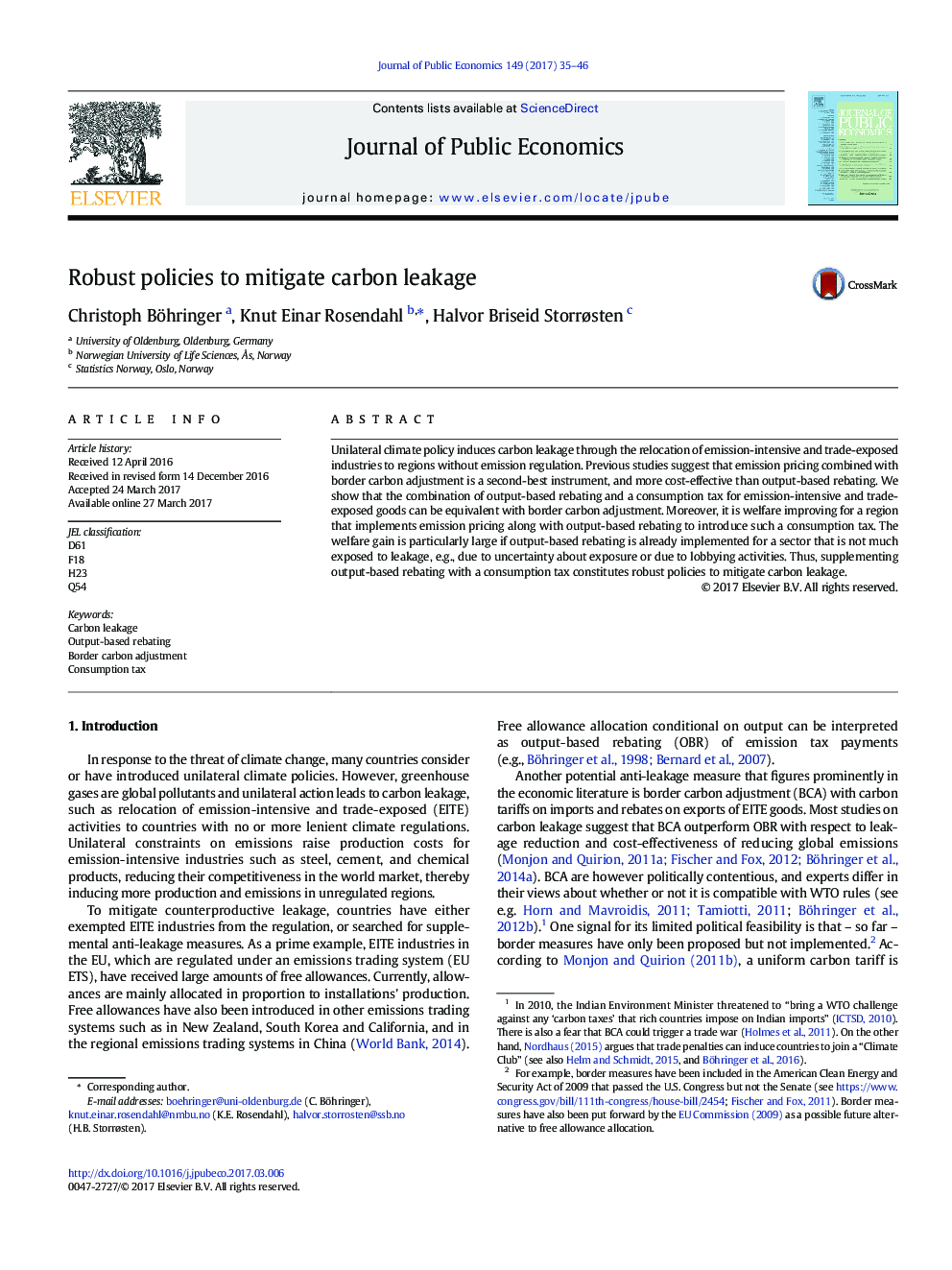| Article ID | Journal | Published Year | Pages | File Type |
|---|---|---|---|---|
| 5101816 | Journal of Public Economics | 2017 | 12 Pages |
Abstract
Unilateral climate policy induces carbon leakage through the relocation of emission-intensive and trade-exposed industries to regions without emission regulation. Previous studies suggest that emission pricing combined with border carbon adjustment is a second-best instrument, and more cost-effective than output-based rebating. We show that the combination of output-based rebating and a consumption tax for emission-intensive and trade-exposed goods can be equivalent with border carbon adjustment. Moreover, it is welfare improving for a region that implements emission pricing along with output-based rebating to introduce such a consumption tax. The welfare gain is particularly large if output-based rebating is already implemented for a sector that is not much exposed to leakage, e.g., due to uncertainty about exposure or due to lobbying activities. Thus, supplementing output-based rebating with a consumption tax constitutes robust policies to mitigate carbon leakage.
Related Topics
Social Sciences and Humanities
Economics, Econometrics and Finance
Economics and Econometrics
Authors
Christoph Böhringer, Knut Einar Rosendahl, Halvor Briseid Storrøsten,
